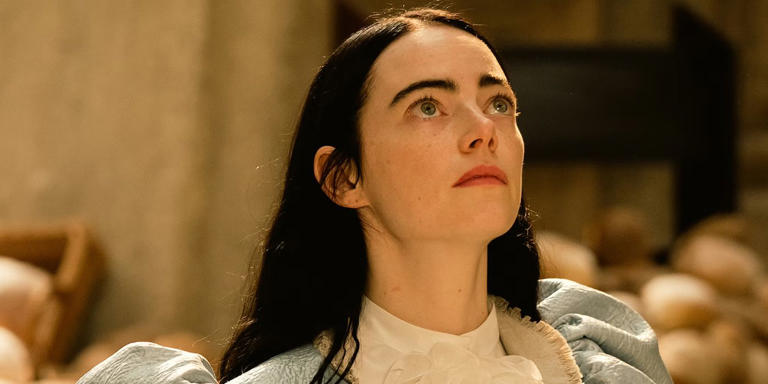From Yorgos Lanthimos, the visionary filmmaker behind The Lobster, The Killing of a Sacred Deer, and The Favorite comes what I believe is his latest piece de resistance. With an excellent screenplay by Tony McNamara, based on the novel Poor Things: Episodes from the Early Life of Archibald McCandless M.D., Scottish Public Health Officer, by Alasdair Gray, Lanthimos’ film offers cinephiles a strange and surreal journey into the development of a woman who has received a brand new lease on life. With an extraordinary performance by Emma Stone, Poor Things has become one of my favorite movies of the year.
Stone stars as Bella Baxter, a young woman who died in a suicide but was brought back to life by the audacious scientist Dr. Godwin Baxter (Willem Dafoe), who has been experimenting with bringing back the dead for second chances at new lives. Revived with the brain of a child, Bella seems to develop at an accelerated rate and quickly develops sexual feelings, which makes sense given that the child’s mind thrives within the body of a fully grown woman.
The movie follows Bellas’s life as she decides to venture away from her sheltered existence and explore the world as the lover of Duncan Wedderburn (Mark Ruffalo). The more she learns about the world around her and the mentality of both men and women during that time, the clearer it becomes to Bella that she must remain in control of her autonomy despite the era’s conventions.
This movie blew me away. I already knew that Yorgos Lanthimos is a brilliant and talented filmmaker, but I genuinely believe that Poor Things is his best entry. I knew little about the source material, so I researched further after watching this movie. I also recently had a discussion with a well-read friend who was familiar with his work, and I can now see how this remarkable movie evolved from what is already an exceptional piece of literature.
Lanthimos, writer McNamara, cinematographer Robbie Ryan, and the incredible art and set design team who created this bizarre, vivid, and nearly avant-garde world have done fantastic work to create a dazzling, exciting, and phenomenal experience. My friend, familiar with the novel’s author, described the author as someone who has inspired other filmmakers such as Terry Gilliam. I see how Gilliam and other filmmakers like Wes Anderson have impacted what are already ingenious minds within Lanthimos and his collaborators.
Every actor in the film’s cast is totally on board with the style and tone of the movie. The delivery of their lines, the comic timing of their performances, and the energy they exude all fall into place beautifully. The true standout of this movie is Emma Stone. The movie follows the rapid development of the brilliant mind of a child who grows into an adult during the film. Stone superbly expresses these emotions, curiosity, and voracious desire for knowledge, but also reflects a courageous side willing to challenge the archaic conventions of the era.
I was also rather impressed with the acting of Mark Ruffalo, who portrays a despicable character who merely uses Bella for sex and other less intelligent purposes. Willem Dafoe is perfectly cast as Dr. Godwin Baxter, a brilliant scientist who is the product of previous experimentation. His character exemplifies what it would look like if Frankenstein’s monster became an incredible force of bold scientific advancement.
I could go on and on about how much I love this movie, but I don’t want to reveal too much more. Just take my word for it. Poor Things is an outstanding and provocative piece of cinema. Its unflinching approach to sex and scientific experimentation will not appeal to everyone. Still, I applaud the courage of Yorgos Lanthimos in his defiance of conventions in delivering his extraordinary take on what I have heard is a riveting novel.
